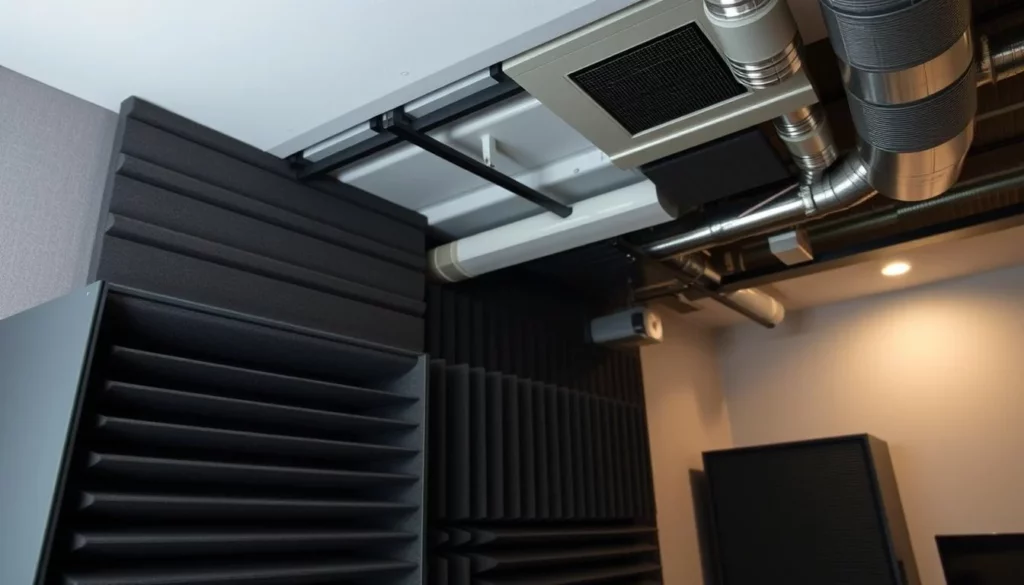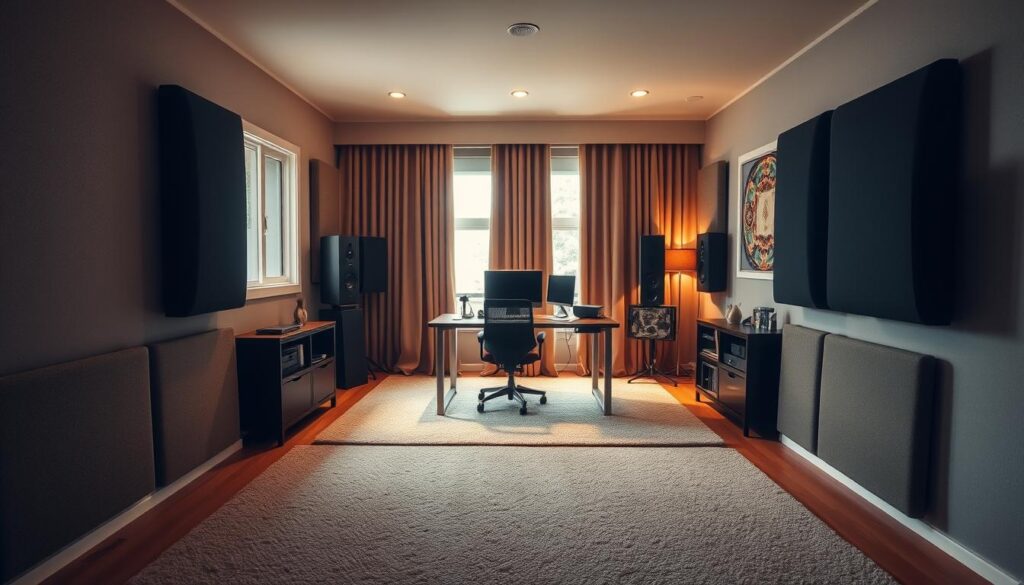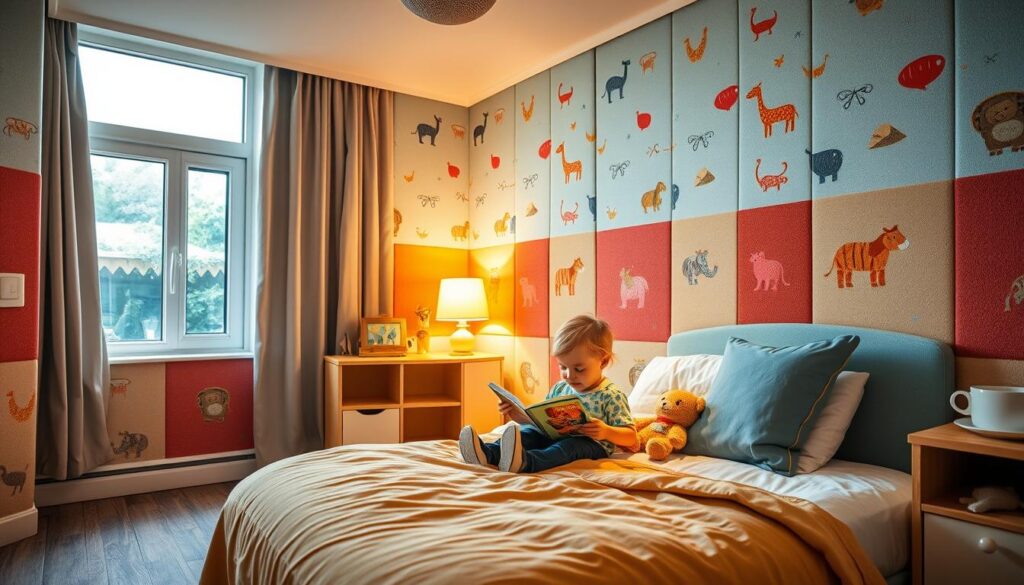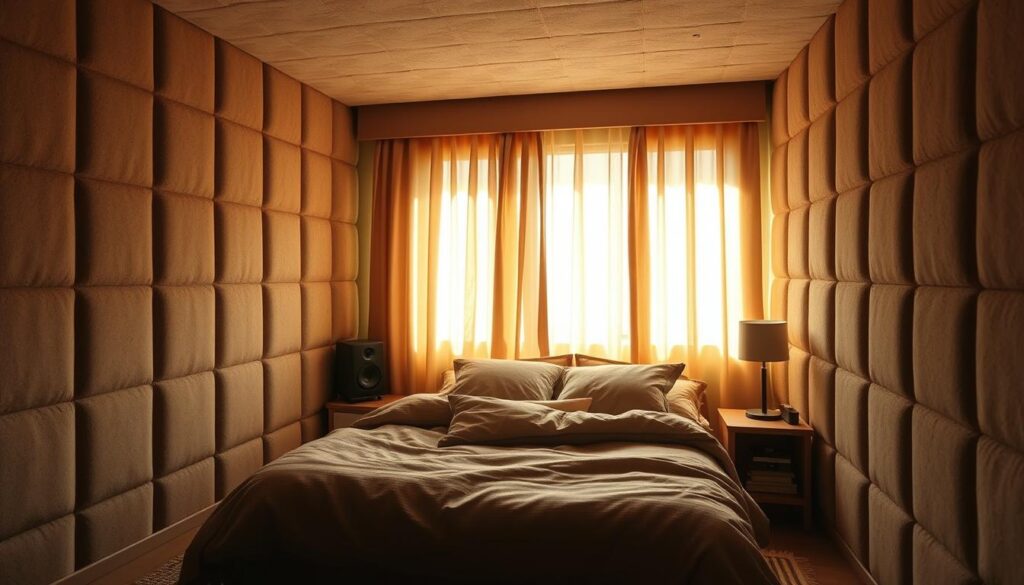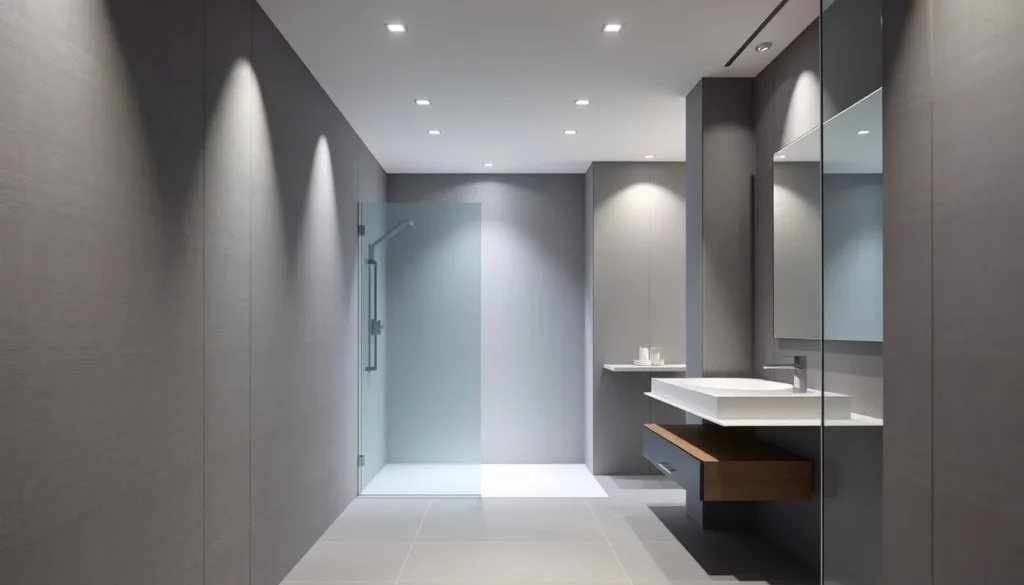Creating a peaceful environment is key, in rooms where focus and productivity matter. Too much noise from heating, ventilation, and air conditioning systems can be distracting.
You can significantly reduce the disturbance by knowing where the noise comes from. Then, use effective soundproofing techniques. This guide will show you how to lessen HVAC noise in areas like living rooms, bedrooms, and home offices.
By using these strategies, you’ll be able to improve your sleep quality, increase productivity, or simply enjoy a more serene living space.
Understanding HVAC Noise: Common Sources
To minimize HVAC noise, it’s important to know where it comes from. HVAC systems make different kinds of noise. Knowing these sources is key to finding good noise control solutions.
Recognizing Different Types of Noise
HVAC systems can make many sounds, like whooshing, rattling, and buzzing. Whooshing sounds mean air is moving through the ducts. Rattling noises might show that parts are loose. Buzzing could mean electrical problems or faulty parts.
Spotting these noises is the first step to fixing the issue.
The Impact of Poor Insulation
Poor insulation makes HVAC noise worse. If ducts aren’t well-insulated, the system works harder and gets noisier. It also vibrates more, adding to the noise. Insulating your ducts well can cut down on noise and boost your HVAC’s efficiency.
Other Factors Contributing to Noise
Other things can also make HVAC noise louder. Loose parts, debris, and not keeping up with maintenance can all increase noise. Regular checks and upkeep can catch and fix these problems early. This way, you can find good quiet room HVAC solutions.
Knowing the various noises and what causes them helps you tackle noise in your room. This makes your space more comfortable and your HVAC system more efficient.
Living Room Solutions for Reducing HVAC Noise
Creating a calm living room starts with lessening HVAC noise. A quieter space makes relaxation better and improves your home’s feel.
To cut down HVAC noise, think about soundproofing. Using soundproofing materials is a smart move. Stuff like mass-loaded vinyl or acoustic foam can lessen noise. They soak up sound waves, making your living room quieter.
Utilizing Soundproofing Materials
Soundproofing materials can be used in many ways for best results. For example, mass-loaded vinyl on walls or ceilings can absorb sound. Acoustic foam panels on walls or as decor can cut down echo and noise.
- Mass-loaded vinyl for added mass to absorb sound
- Acoustic foam panels for reducing echo and noise
- Soundproofing blankets for ducts and vents
Adjusting Air Vents for Optimal Flow
Another good idea is adjusting air vents for better airflow. This can help cut down noise. Making sure your air vents are right can lessen your HVAC system’s noise.
With these steps, you can greatly reduce HVAC noise in your living room. This makes your space more peaceful and fun.
Bedrooms: Creating a Peaceful Sleep Environment
To get a good night’s sleep, it’s key to cut down on HVAC noise in your bedroom. A quiet sleep space is essential for your health. Reducing HVAC noise is a big step towards this goal.
Soundproofing Options for Your Bedroom
Soundproofing your bedroom can greatly reduce HVAC noise. Adding insulation to walls, ceiling, or floor is a good start. It not only cuts down noise but also boosts energy efficiency.
Soundproofing blankets or panels can also be placed around the room to soak up sound. These items help make your room quieter.
Soundproofing materials like acoustic caulk, spray foam, and mass-loaded vinyl can seal gaps and cracks. This further blocks noise from escaping.
Strategic Placement of Furniture
The layout of your furniture can affect the noise level in your bedroom. Move your bed away from air vents and radiators to reduce noise. Heavy, thick curtains or drapes can also absorb some noise.
Use furniture to block noise by placing heavy items like dressers or bookshelves against noisy walls. This helps dampen sound.
Choosing Quieter HVAC Systems
If your HVAC system is old or loud, it might be time for a new one. Modern systems are designed to be quieter and more efficient. Look for systems with a low decibel rating for quieter operation.
When picking a new HVAC system, think about the fan type, insulation quality, and system design. These factors can also affect noise levels.
By using these strategies, you can make your bedroom a quieter place. This will improve your sleep quality and overall well-being.
Kitchen: Minimizing Noise Disruption
To make your kitchen quieter, think about using quiet HVAC solutions. The kitchen is where meals are made and memories are created. But, HVAC noise can really disrupt this space.
Choosing the right appliances and ensuring your HVAC is installed and maintained well can help. Here are some important things to consider:
Selecting the Right Appliances
Choosing quieter appliances can greatly reduce kitchen noise. Look for refrigerators and dishwashers with low decibel ratings. Some brands focus on making quieter appliances, so it’s good to research them.
- Look for appliances with low decibel ratings.
- Research brands known for producing quieter models.
- Consider the placement of appliances to minimize noise disruption.
Insulating Ductwork and Vents
Insulating ductwork and vents is key to reducing HVAC noise in your kitchen. Proper insulation can absorb sound and stop it from spreading through ducts. Use insulation materials around ducts and make sure vents are sealed well.
Key steps for insulating ductwork and vents include:
- Using insulation materials around ducts.
- Sealing vents properly to prevent noise leakage.
- Regularly inspecting ducts for damage or wear.
By using these strategies, you can greatly reduce HVAC noise in your kitchen. This makes cooking more peaceful and enjoyable. For more tips on quiet HVAC systems, check out additional resources.
Home Office: Enhancing Focus and Productivity
To make a productive home office, you need a quiet and focused space. This can be done by tackling HVAC noise. A quiet office helps you focus better and stay productive all day.
Acoustic Panels for Sound Dampening
Using acoustic panels is a great way to cut down HVAC noise in your office. These panels soak up sound waves, cutting down echo and background noise. By putting acoustic panels on walls or ceilings, you can greatly reduce HVAC noise, making your workspace quieter.
Acoustic panels come in many designs and materials. This lets you pick ones that match your office’s look. For the best effect, put panels where sound bounces back the most.
Implementing White Noise Solutions
White noise solutions can also boost focus in your office. White noise machines or fans can cover up HVAC noise, helping you focus. Adding a steady, calming sound to your space can block out distracting noises.
For more tips on making your home quiet and comfy, check out this resource on soundproofing walls to improve home comfort.
Basement: Addressing HVAC Noise Issues
To reduce HVAC noise in your basement, you need to tackle the noise at its source and how it travels. Basements often have HVAC systems and ductwork close by. This setup can make noise levels higher.
Insulating ducts and walls is a good start. It helps block noise from spreading through ducts and walls. This makes your basement quieter.
Insulating Ducts and Walls
To insulate ducts, wrap them with special insulation. This cuts down noise and boosts your HVAC’s efficiency. For walls, adding soundproofing materials or mass can absorb sound. This stops it from moving around.
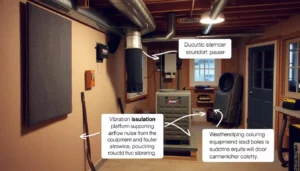
Use of Rugs and Carpets for Sound Absorption
Rugs and carpets also play a role in sound absorption. They work well in areas with hard floors, where sound can echo. Placing them in key spots can make your basement quieter and more peaceful.
With these steps, you can greatly lower noise in your basement. It becomes a cozy spot for living, working out, or having fun. Reducing HVAC noise is essential for a calm and enjoyable space.
Attic Spaces: Controlling HVAC Noise
To reduce HVAC noise, focus on your attic space. The system and ductwork in the attic can cause a lot of noise. Using the right noise control solutions can greatly lessen the disturbance from your HVAC.
Sealing Gaps and Cracks
Sealing gaps and cracks is a key step in controlling HVAC noise in the attic. Noise can leak through gaps around ducts and vents. Use caulk or spray foam to seal these openings, making your home quieter.
Adding Noise-Reducing Insulation
Adding insulation that reduces noise is also important. Materials like fiberglass or cellulose insulation work well. This insulation not only cuts down on noise but also boosts your HVAC’s energy efficiency.
By using these soundproofing HVAC methods, you can make your home quieter and more comfortable. Regular checks and maintenance can also catch problems early, preventing bigger issues later.
Children’s Rooms: Keeping Noise Levels Low
It’s important to make your child’s room quiet for their sleep and growth. A peaceful space helps them sleep better, leading to better health and focus. Simple steps can help achieve this.
Soft Furnishings for Noise Reduction
Soft furnishings are great for making a room quieter. Think about adding thick curtains, plush rugs, or comfy furniture to soak up sound. These items not only make the room cozy but also help block out air conditioner noise.
Designing a Sound-Friendly Layout
The way you arrange your child’s room affects noise levels. Keep beds and play areas away from air vents and HVAC systems to cut down on noise. Using room dividers or furniture can also help make the room quieter.
By using these quiet room HVAC solutions, you can make a calmer space for sleep and play. A quieter room means a happier, healthier child.
Practical Maintenance Tips for Quieter HVAC Systems
Keeping your HVAC system in top shape is crucial for less noise and a cozy home. Simple maintenance steps can greatly reduce your heating and cooling system’s noise.
One key way to keep your HVAC quiet is through regular cleaning and tune-ups. This means checking and swapping out filters, cleaning condenser coils, and making sure all parts work well. For more tips on quieting your HVAC, check out this resource on HVAC noise reduction.
Regular Cleaning and Tune-Ups
Here are some regular maintenance tasks:
- Swap out air filters every 1-3 months to stop dust buildup and ease system strain.
- Annual cleaning of condenser coils helps with heat transfer and cuts down on noise from dirty coils.
- Get a professional tune-up at least once a year to catch and fix problems early.
Upgrading Old Equipment
An old HVAC system can be the main source of noise in your home. Getting a newer, more efficient model can greatly lower noise levels. Today’s HVAC systems are built to be quieter, with features like sound-absorbing materials and slower fans.
When looking to upgrade, search for systems with high SEER ratings and noise-cutting tech. Also, talk to a pro to find the best system for you and ensure it’s installed right for quiet operation.
By sticking to these maintenance tips, you can make your home quieter and more comfy. Regular upkeep, tune-ups, and swapping out old equipment are key to minimizing HVAC noise and keeping your system running smoothly.
When to Consider Professional Help for Noise Issues
DIY fixes can help quiet down your HVAC. But, sometimes, you need a pro to fix loud noises. If you hear loud rattling, hissing, or odd sounds, it’s time to call an expert.
Identifying the Need for Expert Assistance
Too much noise might mean a bigger problem with your HVAC. If DIY fixes don’t work, it’s time for a pro. A skilled technician can find and fix the issue, making your space quieter.
Selecting the Right Professional
Choose an HVAC pro with experience in quiet rooms. Look up reviews, ask for recommendations, and check their credentials. A good pro will make your home quieter and more comfortable.
